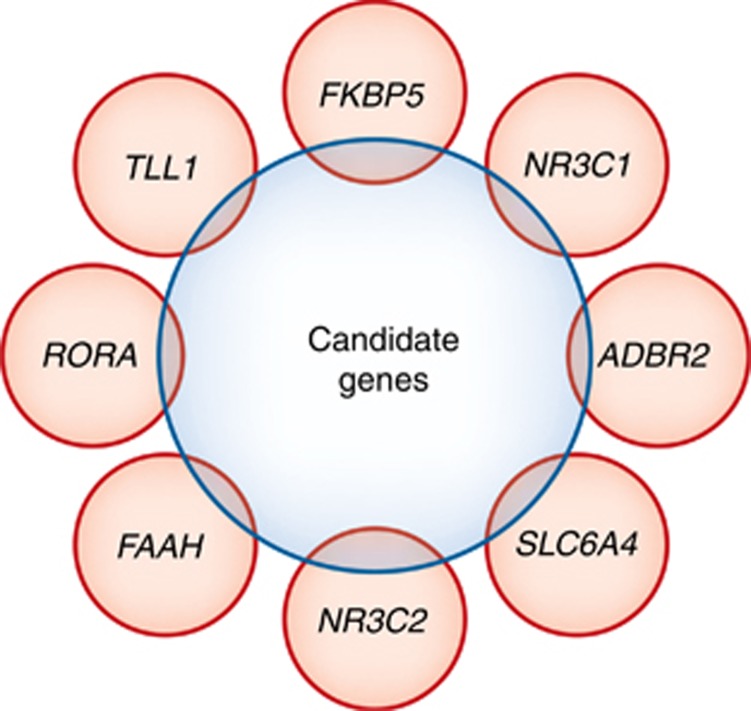Figure 3.
Candidate gene variants moderating stress-related risk for posttraumatic stress disorder (PTSD). A number of human genetic variants have been found to interact with exposure to stress and trauma, often in childhood, to moderate risk for PTSD. To date, these have included the serotonin transporter (SL6A4) (Caspi et al, 2010; Xie et al, 2012), FK506-binding protein 51 (FKBP5) (Zannas and Binder, 2014), adenylate cyclase-activating polypeptide receptor (ADCYAP1) (Dias et al, 2013), and the β-adrenergic receptor (ADBR2) (Liberzon et al, 2014). Although they have not yet been studied for their potential interaction with stress, variants in the Tolloid-Like 1 Gene (TLL1) (Xie et al, 2013), retinoid-related orphan receptor alpha gene (RORA) (Logue et al, 2013) and fatty acid amide hydrolase (FAAH) (Dincheva, 2015; Gunduz-Cinar et al, 2013b) genes have been recently associated with PTSD or PTSD-related personality traits, including fear extinction and stress-reactivity.

